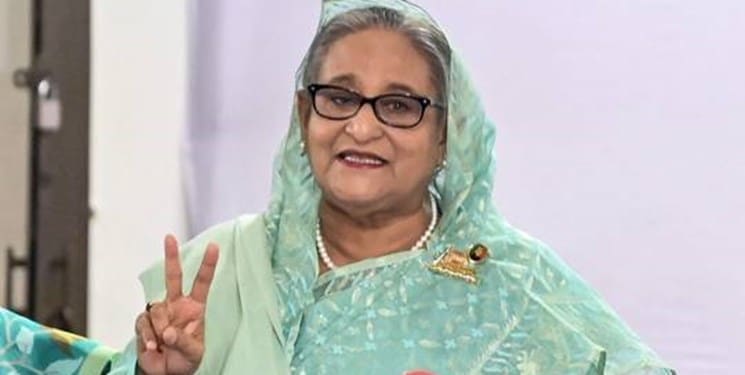Sheikh Hasina became the Prime Minister of Bangladesh for the fifth time.
After the main opposition party boycotted the election, the current Prime Minister of Bangladesh was retained in office for a fifth and fourth consecutive five-year term.
The current Prime Minister of Bangladesh, Sheikh Hasina, won the parliamentary elections yesterday (Sunday), which were boycotted by the main opposition party, for the fifth time and the fourth consecutive round to remain the Prime Minister of Bangladesh for another five-year term.
Hasina has been in power for two decades and is the only person in Bangladesh to have served as prime minister for the longest time, according to Rashatudi Network.
Shortly after polling stations closed last night, local media reported that the ruling Awami League party had won 172 seats out of a total of 225 parliamentary seats.
According to this report, the final statistics for all 300 seats will not be available until Monday, but the results of Sunday night show that Hasina is on the way to regaining the post of prime minister.
According to media reports, there was no doubt about Hasina’s victory again. Bangladesh’s main opposition party, the Bangladesh Nationalist Party (BNP), boycotted the parliamentary elections after thousands of its members were arrested ahead of the parliamentary elections.
The boycott of the elections by the main opposition party of Bangladesh means that the seats not held by the Awami League are divided between smaller parties and independent party candidates.
BNP officials have accused Hasina of rigging previous election victories and claim she is using her power to enforce laws against her political rivals.
In 2021, the United States placed a group of Bangladeshi police forces on the sanctions list for extrajudicial killings.
Hasina, 76, is the daughter of Bangladesh’s first post-colonial leader, who emerged as a leading figure in opposition to the country’s ruling military junta throughout the 1980s. He served as the Prime Minister of Bangladesh from 1996 to 2001 and from 2009 onwards.

